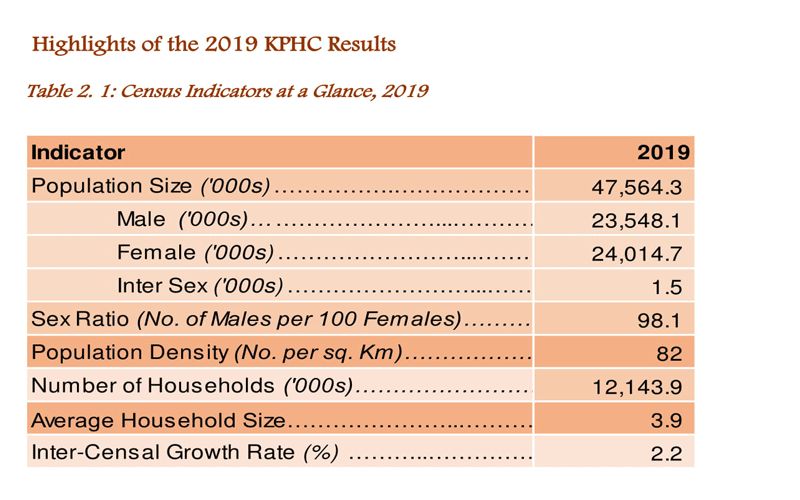Nairobi, 08 November, 2019 / 2:18 am (ACI Africa).
While Kenya’s overall population has increased by about nine million people since the last census in 2009, the report of the 2019 census released early this week shows not only a comparative downward trend in the rate of growth over the years but also a significant drop in the household size, results that seem to reveal, according to some Catholic clergy and laity in Kenya, the use of modern family planning methods including contraceptives.
According to the official 2019 population Census figures announced Monday, November 4 by the Kenya National Bureau of Statistics (KNBS), there are approximately 47.6 million people in Kenya, up from the reported 38.6 million during the 2009 census.
The weeklong exercise that started on the night of August 24, 2019 also shows that Kenya’s population growth rate has reduced from 2.9 percent to 2.2 percent between 1999-2009 and 2009-2019 respectively. In addition, Kenyans seem to be having comparatively less children, with the results showing a decline in the average household size from 5.1 in 2009 to 3.9 in 2019.
“It is true that the issues of contraceptives, abortion and what we call culture of death is affecting us in a very serious way," Bishop Dominic Kimengich of Lodwar told ACI Africa Tuesday, November 5 a day after the 2019 Kenya census results had been announced.
“When people for example stop having children, then we are going to have zero population and it is going to impact on us in a very negative way, because the wealth of a nation is its population,” Bishop Kimengich said, interpreting the reduction of Kenya’s population growth rate and the downward trend in the average household size as deliberate through birth control methods.








